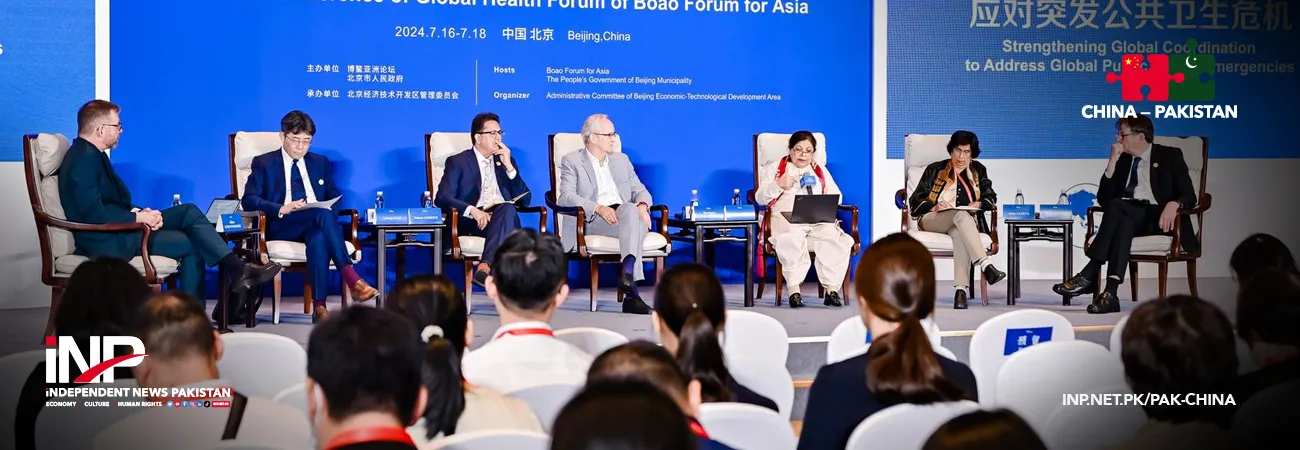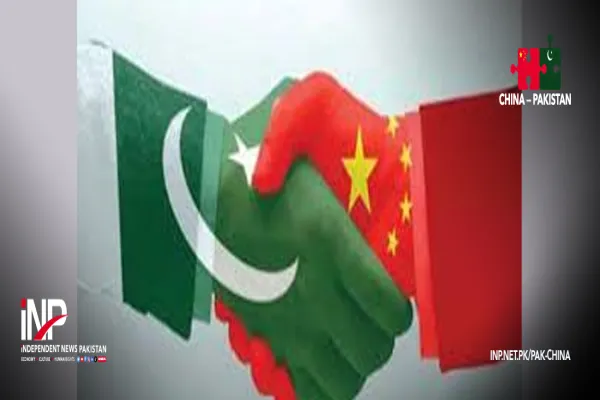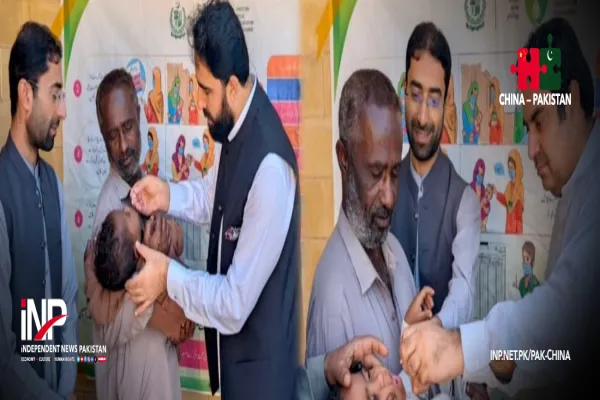i NEWS PAK-CHINA
BEIJING, July 19 (INP): Coordination is cornerstone in facing global health emergencies, like COVID-19 epidemic, said Pakistani UN diplomat Shamshad Akhtar. She was speaking the 3rd Conference of Global Health Forum (GHF) of Boao Forum for Asia, according to a report carried by China Economic Net. About Pakistan's experience, she said our relevant departments tried their best to provide a large amount of funding to fight against COVID-19 epidemic, as well as received financial support from partner countries and international organizations, all of which are extremely vital. Asked what can humans learn from viruses? She replied at first glance, it seems like an absolutely ridiculous question, but the real reality may be enough to alert us. “In the 75 years since its establishment, the WHO has worked hard to do a lot of work. However, from an overall perspective, we are still far from achieving true global coordination. The functions of many departments and platforms are highly overlapping.
Such an inefficient situation may have been ignored by the world for so long, which has ruthlessly exposed by the COVID-19 pandemic,” Shamshad Akhtar, BFA council member and former Under Secretary-General of the UN, expressed bluntly at the 3rd Conference of Global Health Forum (GHF). The Pakistani economist and diplomat’s view was endorsed by renowned Chinese virologist and immunologist Gao Fu. Gao pointed out that countries are paying more attention to competition, not collaboration. He made a remark that the coronavirus is human’s enemy, but learning from the enemy is the key to defeating it. All parties need and must to learn the virus’s spirit of collaboration. Currently, multitudinous vaccines, namely precise small molecule inhibitors are being used, but the novel coronavirus could successfully escape repeatedly because of the synergy of its variants around the world.
The interaction between them makes their mutation rate faster and faster, and even produces sub-variants, for they are extremely good at learning from each other and sharing data. “Once they know that the original strain is useless, they will mutate immediately. Scientists couldn’t name all the variants even if we use up all 26 Greek letters. Thus, know yourself as well as the enemy, and let’s collaborate now.” Akhtar endorsed Gao’s view, added that global medical institutions are in urgent need of reform, during which multilateralism should be the crux. Not only governments and national institutions, but also small and medium-sized enterprises should actively participate in the process, in which data sharing is critical. In addition, she mentioned global financing as a foundation.
“I worked at the World Bank for a long time, so I feel deeply about this point. In layman’s terms, what could be done without money?” Akhtar talked about Pakistan’s experience, noting that relevant departments of Pakistan tried their best to provide a large amount of funding to fight against COVID-19 epidemic, as well as received financial support from partner countries and international organizations, all of which are extremely vital. “Collaboration means that the question we have to think about is: whether globalization can really be achieved?” Under the threat of global epidemics might happen in the future, each country can’t do anything on its own. Just as Ms. Akhtar mentioned, establish a mechanism to solve problems, such as the fundraising and allocation of funds, more efficiently, is what we have to do now, Gao emphasized.
Credit: Independent News Pakistan (INP) — Pak-China









